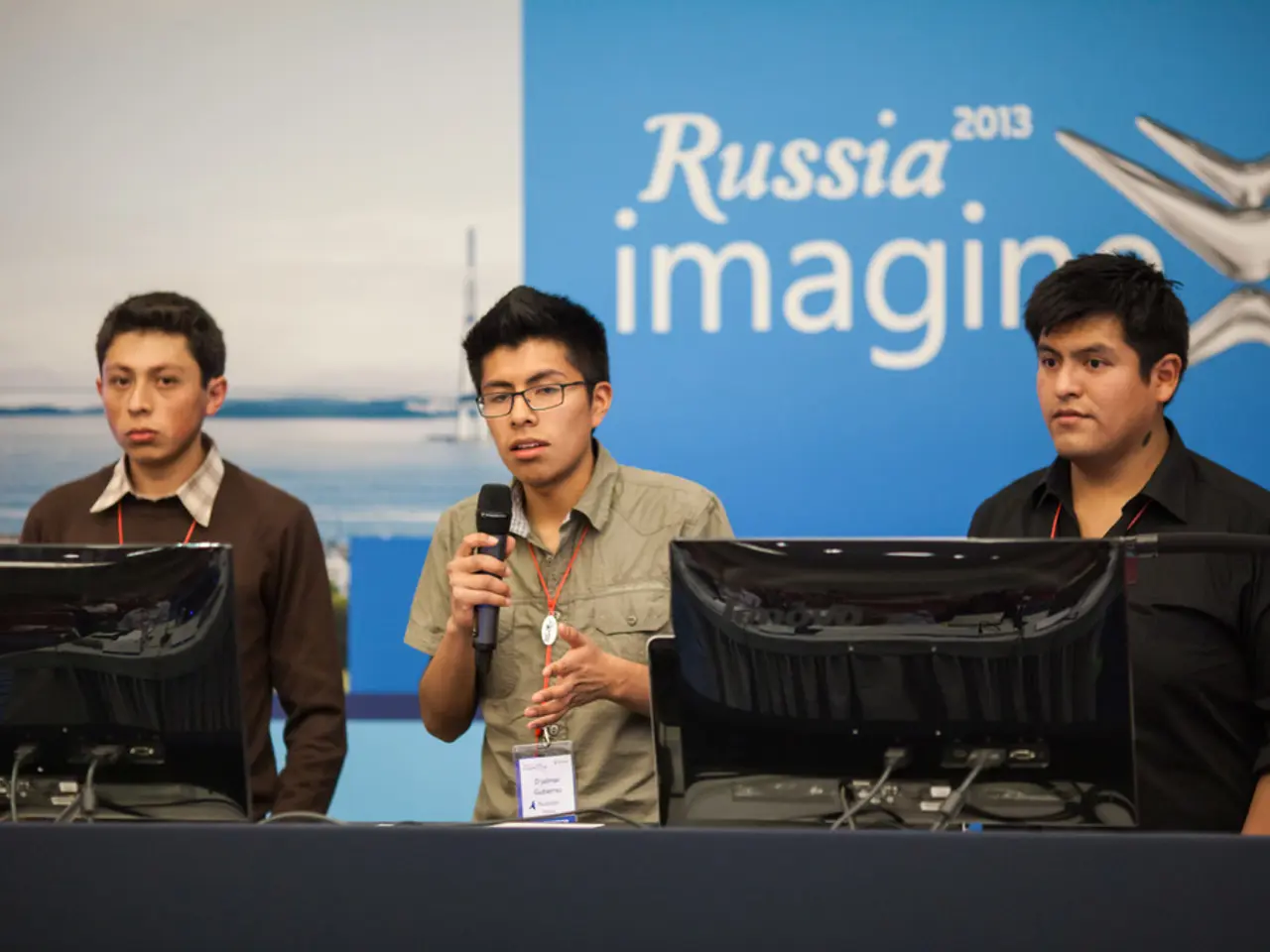In this development, China seeks clarity from Nvidia on the security measures integrated in their artificial intelligence chips.
In the ongoing geopolitical competition between the U.S. and China, a new issue has come to light: the potential security risks associated with Nvidia's H20 chips, sold in China. The Chinese Cyberspace Administration (CAC) has summoned Nvidia representatives to discuss these concerns, escalating the tech conflict between the two nations.
At the heart of the matter are suspicions of "backdoor" security vulnerabilities that could enable location tracking and remote shutdown or control of the chips. The CAC is seeking evidence and explanations from Nvidia to address these potential risks, as they relate to hidden tracking or remote control functions embedded in the H20 GPUs.
The H20 chip is a China-specific cut-down variant of Nvidia’s H100 GPU, designed to comply with U.S. export restrictions. The CAC's inquiry was prompted by reports of serious security vulnerabilities, possibly involving tracking features or remote control "backdoors."
The investigation comes amid U.S. legislative proposals requiring AI accelerator chips to have location verification and tracking technologies before export. This has raised fears in China about personal data exposure or remote manipulation of the chips. Nvidia, however, states that the H20 chips are fully compliant for sale in China and has been asked to submit documentation and detailed explanations on these security concerns.
No public technical analysis or proof validating the backdoor claims has been released yet. The concerns appear to be primarily based on intelligence assessments and regulatory caution around U.S. export restrictions and export control laws that could embed tracking or control mechanisms in advanced AI chips for geopolitical security reasons.
AI experts have stated that location tracking and remote shutdown technologies are market-ready in Nvidia, and U.S. lawmakers have called for advanced chips made in the U.S. to be equipped with tracking functions. The H20 chips were specifically developed for the Chinese market.
The CAC is requesting technical documents from Nvidia regarding the H20 chips. The outcome of this investigation could have significant implications for the tech industry and the ongoing geopolitical competition between the U.S. and China.
[1] China's Cyberspace Administration Summons Nvidia Over Alleged Security Risks in H20 Chips
[2] Nvidia Faces Probe Over Security Concerns in H20 Chips Sold in China
[3] China's Cyberspace Administration Investigates Nvidia Over H20 Chip Security Concerns
[4] U.S. Lawmakers Call for Tracking Functions in Advanced Chips
[5] AI Experts: Location Tracking and Remote Shutdown Technologies Are Market-Ready in Nvidia
[1] "Amidst the escalating tech conflict between the U.S. and China, China's Cyberspace Administration has summoned Nvidia representatives over alleged security risks found in the H20 chips, sold in China."
[2] "The H20 chips, a China-specific version of Nvidia’s AI-centric H100 GPU, are under investigation by the Chinese Cyberspace Administration due to potential security risks such as location tracking and remote shutdown or control features."




